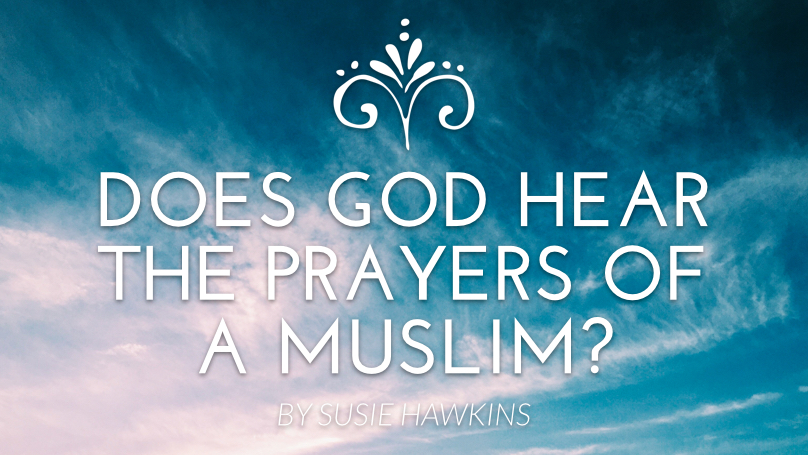There was a certain man in Caesarea called Cornelius, a centurion …., a devout man and one who feared God with all his household, who gave alms generously to the people, and prayed to God always. About the ninth hour of the day he saw clearly in a vision an angel of God coming in and saying to Him, “Cornelius!” And when he observed him, he was afraid and said, “What is it, lord?” So he said to him, “Your prayers and your alms have come up for a memorial before God. Now send men to Joppa and send for Simon, whose surname is Peter.” – Acts 10:1-5
Have you wondered if God hears the prayer of the Muslim? Or any unbeliever? Acts 10 gives us the answer to this question.
This is the month of Ramadan, the thirty-day annual feast for Muslims across the world. Ramadan, a period of fasting and prayer that religious Muslims observe, is one of the five pillars of Islam: The Shahada (profession of belief), daily prayer, giving of alms, the Haj (pilgrimage to Mecca) and observance of Ramadan.
Having good friends who are God-fearing Muslims in the Middle East has pressed me and my husband to pray for them during their season of heightened religious activity. My friend and a former Muslim helped develop an app called “30 Day Prayer for Muslims” which is a prayer guide for Christians who are praying for Muslims during Ramadan. Mulling over it one day, I remembered the story of Cornelius in Acts 10 and noticed some parallels between him and our friends.
Like Cornelius, these three men and their families are “devout”, in the sense that they are observant Muslims who take their faith seriously. They “fear God” by praying at the mosque regularly and adhering to the Five Pillars, which includes being generous to the poor. We have often seen beggars and the disabled gathering in the courtyard of one of these men’s businesses in the old city of Jerusalem, waiting for him to provide money and food for them, which he regularly does. In the narrative above, God called Cornelius by name, which reminds me that He knows our friends’ names also. Just as God noticed Cornelius’ prayers and alms, I pray He will notice theirs.
We frequently hear accounts of religious Muslims having visions or dreams of a man in white who identifies Himself as the Son of God. Once the dream is explained in light of the gospel, it is clear that the man is Christ and He is seeking the one who had the vision. This follows the pattern of Cornelius’ story: the God fearing man or woman, the vision and then the explanation, given by a believer whom God has providentially sent.
We who embrace the gospel realize that God is not obligated to hear any prayer that does not come from a sincere heart and is not offered in Jesus’ name. However, God is not bound by anything except His love, which is limitless, and His Word, which is eternal. If He wishes to hear the prayers of God-fearing Muslims, Jews, or anyone else who might seek him with a humble and sincere heart, He can respond to them in ways in ways we may not understand.
This is our challenge: during these final days of Ramadan, we must pray diligently that God will reveal Himself to the Muslim world just as He did to Cornelius, and that they also would “see clearly.” Praying at 3 pm, the time of Cornelius’ vision puts us in the story, as we ask God to reveal Himself to the Muslim world. I’ve set my timer on my phone to do just that. Pray that God will hear the prayers of His servants who have sought to bring the message of Christ in Muslim communities and nations.
Does God hear the prayer of a Muslim or any unbeliever? He heard Cornelius’ prayer and He can hear theirs.
Published July 15, 2015



